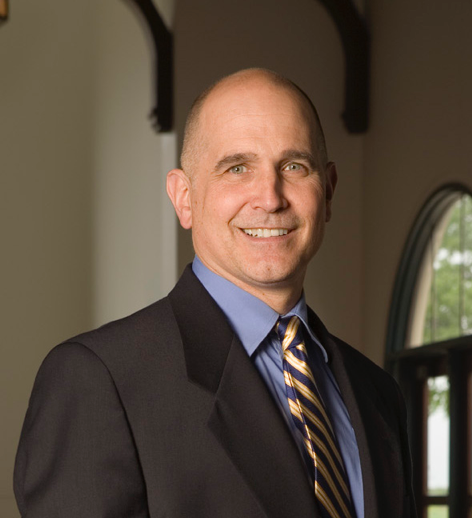As the head of La Jolla Country Day School, a PK-12 independent school, Gary Krahn has been part of an educational team seeking to gently guide students to become leaders who treat people with dignity and can anticipate and respond effectively to the uncertainties and opportunities of a changing technological, social, political, and economic world. He brings to LJCDS his depth of experience of over 29 years on active duty before retiring in the grade of Brigadier General, helping to establish and build the 18th university in Afghanistan, and redesigning the mathematics program at West Point, from which he’s also a graduate.
Below Gary reflects on his experience at Donovan…
On August 6, 2019, Mariette escorts me into Donovan State prison. Little do I know that the experience will be an education on humanity.
The grounds at Donovan grab my attention immediately. They are harsh and the structures are designed to separate people, seclude individuals and reinforce the fact that prisoners have little control of their lives. The environment continually reminds residents, volunteers and those who work there that the primary purpose of prison is punitive not developmental.
Walking inside from the grounds of the prison allows the people within Donovan to slowly seep into the volunteer’s awareness. I meet a staff psychiatrist, a guard, a prisoner, another prisoner, another guard and several volunteers. Because of an “incident on another yard,” the prison goes on lockdown, significantly limiting Mariette’s access to prisoners. Prisoners, however, find her.
“Human dignity transcends all our differences, putting our common human identity above all else.”
Within minutes of her arrival, an inmate, who is organizing an upcoming Restorative Justice Fair, is focused on every word Mariette is sharing. Mariette makes it clear that he is responsible for everything that happens at the event and everything that does not happen. After listening to the inmate about his preparations, Mariette, with a firm and gentle hand, encourages him to have greater quality control in place for the speakers. The inmate understands the expectations and is eager to learn how to resolve the shortfall. His appreciation of Mariette’s insights and leadership is touching. This inmate is caring, thoughtful, and committed to doing what is right. It is puzzling witnessing such a kind and competent person with a growth mindset in a blue prisoner outfit. The inmate shares that there was a time when the only skill he had to provide for his family was theft. Today, he has the skills to not only lead himself, but to lead others.
As one of the speakers for the RJ Fair, another inmate quickly reaches out to Mariette. He shares a multitude of personal experiences. Mariette asks if he is open on getting feedback on his storytelling. She explains that his stories must be more focused and come from the heart. He then goes on to talk about how, at fourteen, he charged toward his abusive father. After throwing his father to the ground, he saw fear in his father’s eyes. At that moment, he learned that he could project his fear onto others. There was no place better to do this than in a gang. After many years in prison, he is remarkably self-aware and a gentler person.
This visit to Donovan opened my eyes to the humanity within a prison. I was not exposed to the human conflicts among prisoners and guards nor privy to the victims who had been impacted by these inmates. But I was exposed to the decency within flawed human beings. And the greatest humanitarian was Mariette.
Mariette demonstrated that human dignity transcends all our differences, putting our common human identity above all else. While our uniqueness and identity are important, if we take the next step toward recognizing our shared identity, our world will become and better place. Serving people who need help should be a goal of every human being. For Mariette, it is not a goal, it is her life.






